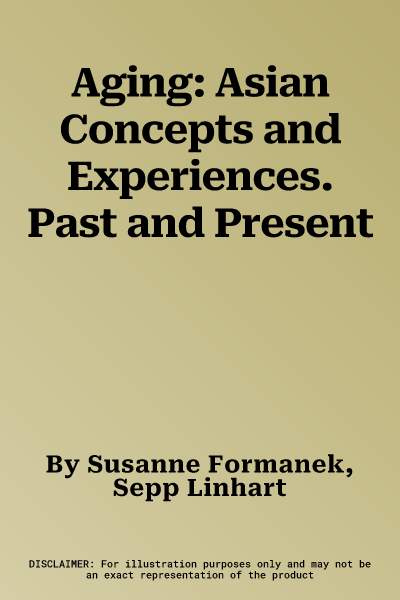Susanne Formanek
(Author)Aging: Asian Concepts and Experiences. Past and PresentPaperback, 31 December 1997

Qty
1
Turbo
Ships in 2 - 3 days
Only 2 left
Free Delivery
Cash on Delivery
15 Days
Free Returns
Secure Checkout

Part of Series
Beitrage Zur Kultur- Und Geistesgeschichte Asiens
Part of Series
Sitzungsberichte / Osterreichische Akademie Der Wissenschaft
Print Length
400 pages
Language
English
Publisher
Austrian Academy of Sciences Press
Date Published
31 Dec 1997
ISBN-10
3700124732
ISBN-13
9783700124733
Description
Product Details
Authors:
Book Format:
Paperback
Country of Origin:
US
Date Published:
31 December 1997
Genre:
Asian - General
ISBN-10:
3700124732
ISBN-13:
9783700124733
Language:
English
Location:
Vienna
Pages:
400
Publisher: